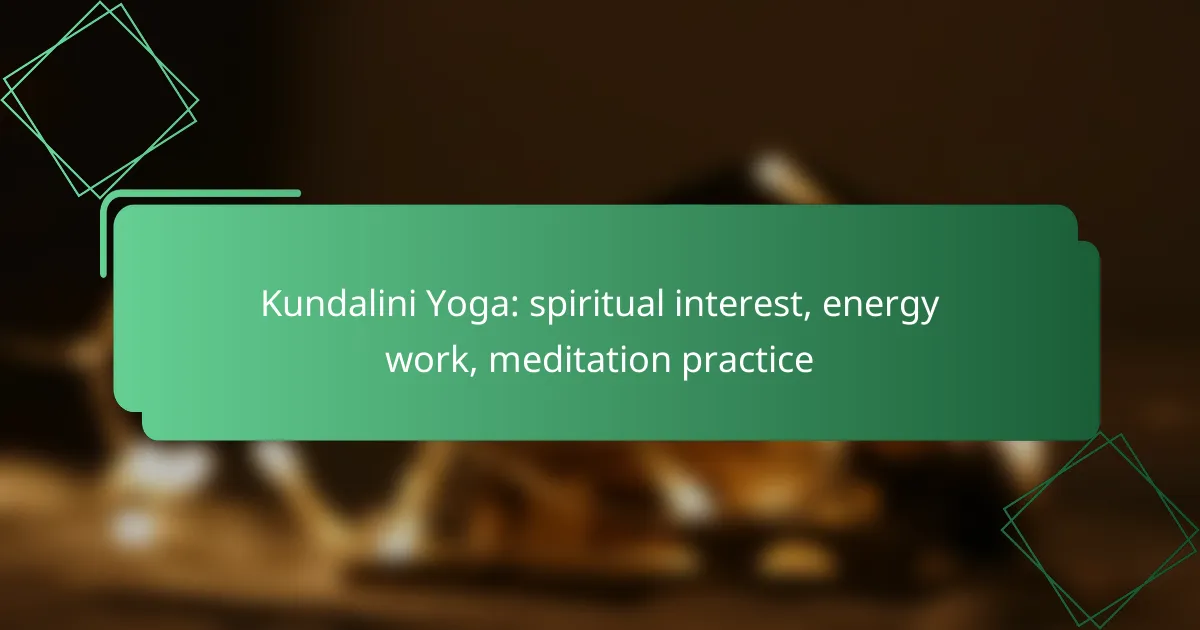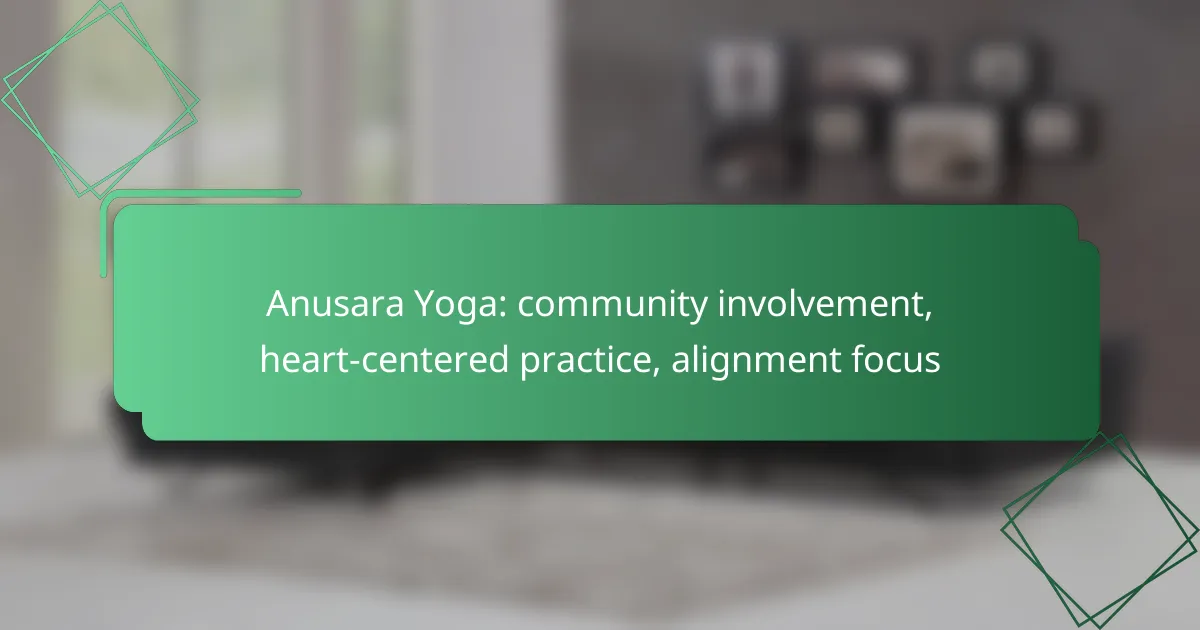Jivamukti Yoga is a holistic practice that intertwines an ethical lifestyle with principles of compassion, sustainability, and mindfulness. It not only fosters a deep connection to one’s self and the universe through philosophical teachings but also enhances the experience with a diverse selection of uplifting music that resonates with the themes of each class.

How does Jivamukti Yoga promote an ethical lifestyle?
Jivamukti Yoga promotes an ethical lifestyle by integrating principles of compassion, sustainability, and mindfulness into daily living. This practice encourages individuals to adopt habits that reflect kindness towards all beings, the environment, and themselves.
Principles of non-violence
Non-violence, or ahimsa, is a foundational principle in Jivamukti Yoga. Practitioners are encouraged to avoid causing harm to others, whether through physical actions, words, or thoughts. This commitment extends to all living beings, fostering a mindset of respect and empathy.
To embody non-violence, individuals can practice active listening, choose words carefully to avoid conflict, and engage in peaceful conflict resolution. This approach not only enhances personal relationships but also contributes to a more harmonious community.
Plant-based diet advocacy
Jivamukti Yoga advocates for a plant-based diet as a means to promote health and reduce harm to animals. By choosing vegetarian or vegan options, practitioners align their eating habits with their ethical beliefs, minimizing their ecological footprint and supporting animal welfare.
Transitioning to a plant-based diet can be approached gradually. Start by incorporating more fruits, vegetables, and whole grains while reducing meat consumption. Many find that exploring diverse cuisines can make this shift enjoyable and sustainable.
Environmental consciousness
Environmental consciousness is integral to Jivamukti Yoga, emphasizing the interconnection between personal well-being and the health of the planet. Practitioners are encouraged to adopt sustainable practices, such as reducing waste, recycling, and supporting eco-friendly products.
Simple actions like using reusable bags, conserving water, and choosing local produce can significantly impact the environment. Engaging in community clean-up events or supporting environmental organizations can further enhance one’s commitment to ecological stewardship.

What music is preferred in Jivamukti Yoga classes?
Jivamukti Yoga classes typically feature a diverse selection of music that enhances the practice and creates an uplifting atmosphere. The music is chosen to resonate with the themes of the class, often incorporating various genres to support the flow of the session.
Eclectic mix of genres
In Jivamukti Yoga, instructors often curate an eclectic mix of genres, including world music, classical, and contemporary sounds. This variety helps to create a dynamic environment that can energize or calm practitioners, depending on the class’s focus. Expect to hear everything from traditional Indian music to modern electronic beats.
By blending different styles, teachers can cater to the diverse tastes of their students, making each class a unique auditory experience. This approach also reflects the philosophy of inclusivity inherent in Jivamukti Yoga.
Use of live music
Many Jivamukti Yoga classes incorporate live music, which adds a personal touch and enhances the overall experience. Live musicians may play instruments such as guitars, flutes, or drums, creating a vibrant atmosphere that recorded music cannot replicate. This practice fosters a deeper connection between the participants and the music.
Live music can also adapt to the energy of the class, allowing for a more responsive and immersive experience. Instructors may collaborate with local musicians, supporting the community while enriching the practice.
Focus on uplifting and spiritual themes
The music selected for Jivamukti Yoga classes often emphasizes uplifting and spiritual themes, aligning with the practice’s core values. Tracks may include lyrics or messages that promote mindfulness, compassion, and connection, enhancing the meditative aspects of yoga.
Instructors aim to create an environment that encourages introspection and emotional release, using music as a tool to deepen the practice. This focus on spirituality helps participants connect not only with themselves but also with the collective energy of the class.

What philosophical interests are associated with Jivamukti Yoga?
Jivamukti Yoga is deeply rooted in various philosophical interests that emphasize ethical living, spiritual growth, and a connection to the universe. Central to its practice are the teachings derived from Eastern philosophies, modern spiritual insights, and a strong focus on self-awareness and mindfulness.
Influence of Eastern philosophies
Eastern philosophies, particularly those from Hinduism and Buddhism, significantly shape Jivamukti Yoga. Concepts such as karma, dharma, and the interconnectedness of all beings are integral to its teachings. Practitioners are encouraged to reflect on their actions and their impact on the world around them.
Additionally, the practice often incorporates elements of meditation and chanting, which are essential in Eastern traditions. These practices help cultivate a deeper understanding of oneself and the nature of existence.
Integration of modern spiritual teachings
Jivamukti Yoga also integrates modern spiritual teachings, drawing from various contemporary spiritual leaders and philosophies. This blend allows practitioners to explore diverse perspectives on spirituality, encouraging personal growth and transformation. The teachings often focus on compassion, love, and the importance of living in harmony with others.
Workshops and classes may include discussions on topics such as environmentalism and social justice, linking spiritual practice with real-world issues. This approach fosters a sense of responsibility towards the planet and its inhabitants.
Emphasis on self-awareness and mindfulness
A core aspect of Jivamukti Yoga is the emphasis on self-awareness and mindfulness. Practitioners are taught to be present in their bodies and minds, cultivating an acute awareness of their thoughts and feelings. This practice enhances emotional regulation and promotes a more balanced lifestyle.
Mindfulness techniques, such as breath awareness and body scans, are commonly used during sessions. These practices help individuals develop a deeper connection to their inner selves, leading to greater clarity and purpose in their daily lives.

How can I incorporate Jivamukti Yoga into my daily routine?
Incorporating Jivamukti Yoga into your daily routine involves integrating its physical practice, ethical lifestyle, and philosophical teachings into your life. Aim for a balanced approach that includes asana practice, mindfulness, and community involvement to fully embrace the Jivamukti principles.
Daily practice recommendations
Begin with a consistent asana practice, ideally 3 to 5 times a week, focusing on both physical postures and breath work. Each session can last from 60 to 90 minutes, allowing you to explore the depth of each pose and its alignment with your body.
Consider incorporating a short morning routine that includes sun salutations and meditation to set a positive tone for the day. Evening practices can help unwind and reflect on your day, reinforcing the connection between body and mind.
Mindfulness exercises
Mindfulness is central to Jivamukti Yoga, and you can practice it through daily meditation sessions. Start with 5 to 10 minutes of seated meditation, focusing on your breath or a specific mantra to cultivate awareness and presence.
Additionally, integrate mindfulness into daily activities such as eating or walking. Pay attention to sensations, thoughts, and feelings without judgment, promoting a deeper connection to your experiences.
Community engagement opportunities
Engaging with the Jivamukti community can enhance your practice and provide support. Look for local Jivamukti studios or classes that offer workshops and events, which can deepen your understanding and connection to the philosophy.
Participate in community service or activism initiatives that align with Jivamukti values, such as environmental conservation or animal rights. This involvement not only enriches your practice but also fosters a sense of belonging and purpose within the community.

What are the prerequisites for starting Jivamukti Yoga?
To start Jivamukti Yoga, individuals should have basic yoga experience, an understanding of ethical principles, and an openness to diverse musical influences. These prerequisites help ensure a deeper engagement with the practice and its philosophy.
Basic yoga experience
Having a foundational understanding of yoga poses and practices is essential before diving into Jivamukti Yoga. Ideally, practitioners should have attended several classes in other yoga styles to familiarize themselves with common asanas and breathing techniques.
Beginner yogis can benefit from taking introductory classes or workshops to build confidence and competence. This preparation allows for a smoother transition into the more dynamic and philosophical aspects of Jivamukti Yoga.
Understanding of ethical principles
Jivamukti Yoga emphasizes ethical living, which includes principles such as non-violence, compassion, and environmental awareness. Practitioners should be familiar with these concepts and how they relate to yoga practice and daily life.
Engaging with texts or discussions on yoga ethics can enhance understanding. This knowledge not only enriches the practice but also encourages a lifestyle aligned with the values of Jivamukti Yoga.
Openness to diverse musical influences
Music plays a significant role in Jivamukti Yoga classes, often incorporating various genres to enhance the experience. Practitioners should be open to listening to and appreciating different musical styles, as this can deepen their connection to the practice.
Being receptive to diverse musical influences can also foster a more enjoyable and immersive atmosphere during classes. Consider exploring different types of music that resonate with the themes of the practice, such as world music, chanting, or contemporary sounds.

What are the benefits of Jivamukti Yoga?
Jivamukti Yoga offers numerous benefits, including improved physical health, mental clarity, and a deeper connection to ethical living. This practice combines physical postures, breathing techniques, and philosophical teachings, promoting overall well-being and mindfulness.
Ethical lifestyle
Jivamukti Yoga emphasizes an ethical lifestyle rooted in compassion and non-violence. Practitioners are encouraged to adopt a vegan diet, which aligns with the principle of ahimsa, or non-harming, promoting both personal health and environmental sustainability.
Incorporating ethical practices into daily life can include choosing cruelty-free products, supporting local and sustainable businesses, and engaging in community service. These actions not only enhance personal well-being but also contribute positively to society.
Music preference
Music plays a significant role in Jivamukti Yoga classes, enhancing the overall experience and setting a spiritual tone. Classes often feature a blend of traditional Indian music, contemporary tunes, and sounds that inspire relaxation and focus.
Choosing the right music can elevate the practice, helping to create an atmosphere conducive to meditation and movement. Many practitioners enjoy playlists that include artists like Krishna Das or Deva Premal, which resonate with the philosophy of Jivamukti Yoga.
Philosophical interest
The philosophical aspect of Jivamukti Yoga draws from ancient texts and modern interpretations, encouraging practitioners to explore concepts such as interconnectedness and mindfulness. This exploration fosters a deeper understanding of oneself and the world.
Engaging with philosophical teachings can involve reading texts like the Bhagavad Gita or participating in discussions about yoga’s ethical implications. This intellectual engagement complements the physical practice, enriching the overall Jivamukti experience.










